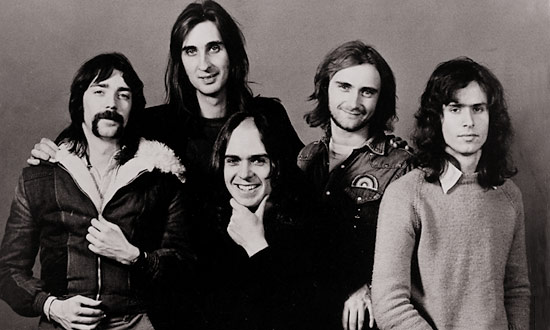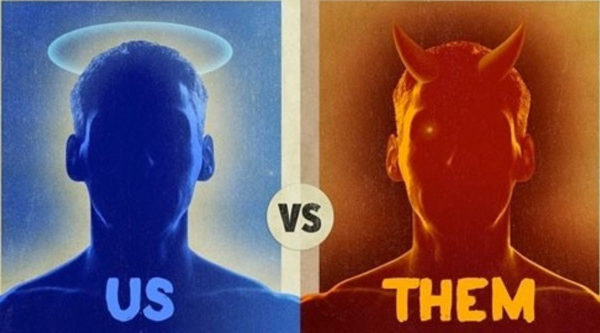
Oooops…wrong Genesis:) Great band though. From left to right: Steve Hackett, Mike Rutherford, Peter Gabriel, Phil Collins, Peter Banks.
We are not born with shame. Shame has to be indoctrinated. Shame tends to be passed on in families like a bad gene, only it is not genetic. Shame based families beget shame based individuals. Someone who does not feel OK about who they are, will probably not be particularly given to engage in praise, validation, encouragement and even much verbal interaction with their children. Little kids, will therefore blame themselves for the lack of apparent positive feelings/attention coming from their parents. They will naturally assume that if parents don’t show love, or withdraw love or attention at some point in their development, that it is somehow their own fault. They may start blaming their appearance, intellect, athleticism (or lack thereof), performance, weight and so on for their parents behavior. The child is likely to internalize parental treatment and inwardly repeat negative evaluations and criticisms that were directed toward them.
Cultural factors as well serve to transmit feelings of shame. Our religious institutions sometimes teach us that we are inherently flawed, and sinful. Shame is sometimes exalted as a virtue. In the book of Genesis, Adam and Eve, though not initially imbued with shame, became ashamed of their nakedness. Ultimately, they were cast out of the Garden of Eden and were never to again know their natural place in the order of nature (dharma). Thus, they were destined to become embroiled in a war of control against their own essential nature, and the natural environment that spawned them. These belief systems were carried to our shores by the early settlers, among these being Puritans, Quakers and so on, that extolled the virtues of emotional stoicism, self-control, and the pre-eminent value of shame, as a primary vehicle of control. The belief was (and remains in many quarters) that if not for shame and guilt, we would behave as animals and would otherwise be incapable of civility. Evidence is mounting to the contrary. Compassion towards others starts on the inside. Those who are taught compassion toward themselves, are far more likely to “pay it forward” and experience and demonstrate compassion toward others. Not because they are following some rule or moray, but because it causes joy to do so.
The sobering fact is that most of us, in some fashion and to some degree are carriers of the shame “virus”. So now the question becomes, What do we do with shame? Our reflexive response is to control or suppress shame. But in fact, paradoxically, that is shame talking. The thing to do is not to control shame, since that is akin to “wiping blood with blood”. What we must do is rather to learn to embrace shame. Stay tuned for the next blog….or read the book:)
As always, please feel free to jump in with comments, anecdotes, observations, and even respectful criticisms are warmly accepted. This is after all, the no shame zone!







2 Comments. Leave new
Interestingly enough this topic has haunted my twin sister and I for a long time, her more so than myself. I believe your first paragraph states the roots of it quite well. Both of our parents were ACOA’s, Adult Children of Alcoholics, perhaps that itself set forth their basis for the manifestation of shame in their lives and ours as well.
My life consists of 2 divorces of which I never dreamed would ever happen. I have 2 adult children, one of which I can see I had passed on some of the insecure issues to. However, due to my participation in ALANON and the tools it offers, I have grown leaps and bounds in a year and a half. My eyes and my mind are bulging with new found confidence and belief in my capabilities, even those yet to be discovered. I am learning just who I really am. I see character traits that need some honing and perhaps removed with God’s help. I do not get stuck in shame over them. So much healing has happened I am stunned.
Thank you for exploring this topic.
Chris
Thank you for bringing forth this important disclosure. Indeed, shame often finds safe refuge in families with alcoholism. Alcohol may be used as a means of helping people avoid deep-seated feelings of shame. Furthermore, alcohol consumption, due to its resulting psychosocial impacts creates its own feelings of regret, guilt and shame which helps fuel this cycle. I fully support your utilization in Alanon since “opening up”, especially in a supportive social context, is like garlic to a vampire (the blog management apologizes for the continued use of horrible metaphors):)